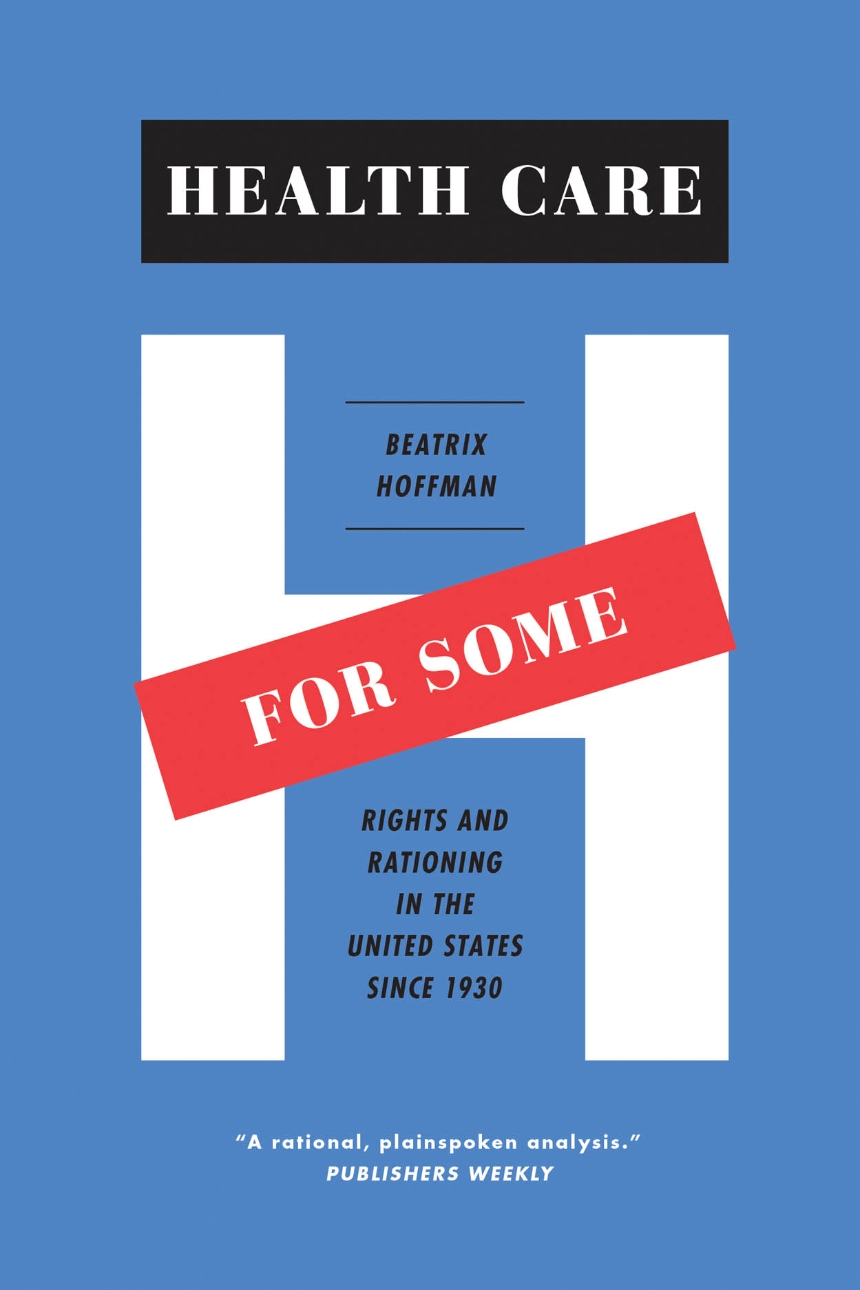Health Care for Some
Rights and Rationing in the United States since 1930
9780226102191
9780226348032
9780226348056
Health Care for Some
Rights and Rationing in the United States since 1930
In Health Care for Some, Beatrix Hoffman offers an engaging and in-depth look at America’s long tradition of unequal access to health care. She argues that two main features have characterized the US health system: a refusal to adopt a right to care and a particularly American approach to the rationing of care. Health Care for Some shows that the haphazard way the US system allocates medical services—using income, race, region, insurance coverage, and many other factors—is a disorganized, illogical, and powerful form of rationing. And unlike rationing in most countries, which is intended to keep costs down, rationing in the United States has actually led to increased costs, resulting in the most expensive health care system in the world.
While most histories of US health care emphasize failed policy reforms, Health Care for Some looks at the system from the ground up in order to examine how rationing is experienced by ordinary Americans and how experiences of rationing have led to claims for a right to health care. By taking this approach, Hoffman puts a much-needed human face on a topic that is too often dominated by talking heads.
360 pages | 14 halftones | 6 x 9 | © 2012
Economics and Business: Economics--History
History: American History
Reviews
Table of Contents
Introduction
Rationing and Rights: History and Definitions
Prologue: Rights and Rationing before 1930
Rationing and Rights: History and Definitions
Prologue: Rights and Rationing before 1930
Part I: The Struggle for Health Care in the Great Depression
Chapter 1: A Crisis of Access
Chapter 2: Social Security without Health Security
Part II: Prosperity and Exclusion, 1941–64
Chapter 3: Health Care at War
Chapter 4: Rights to Refuse: The Triumph of the Hospital
Chapter 5: Rationing by Coverage: The Rise of Private Health Insurance
Part III: New Entitlements and New Movements, 1965–80
Chapter 6: Entitlements but Not Rights: Medicare and Medicaid
Chapter 7: The Rise of Health Care Activism
Part IV: Rights vs. Markets, 1981–2008
Chapter 8: Emergency Rooms and Epidemics
Chapter 9: At the Breaking Point
Epilogue: Rights, Rationing, and Reform
Acknowledgments
Notes
Glossary
Bibliography
Index
